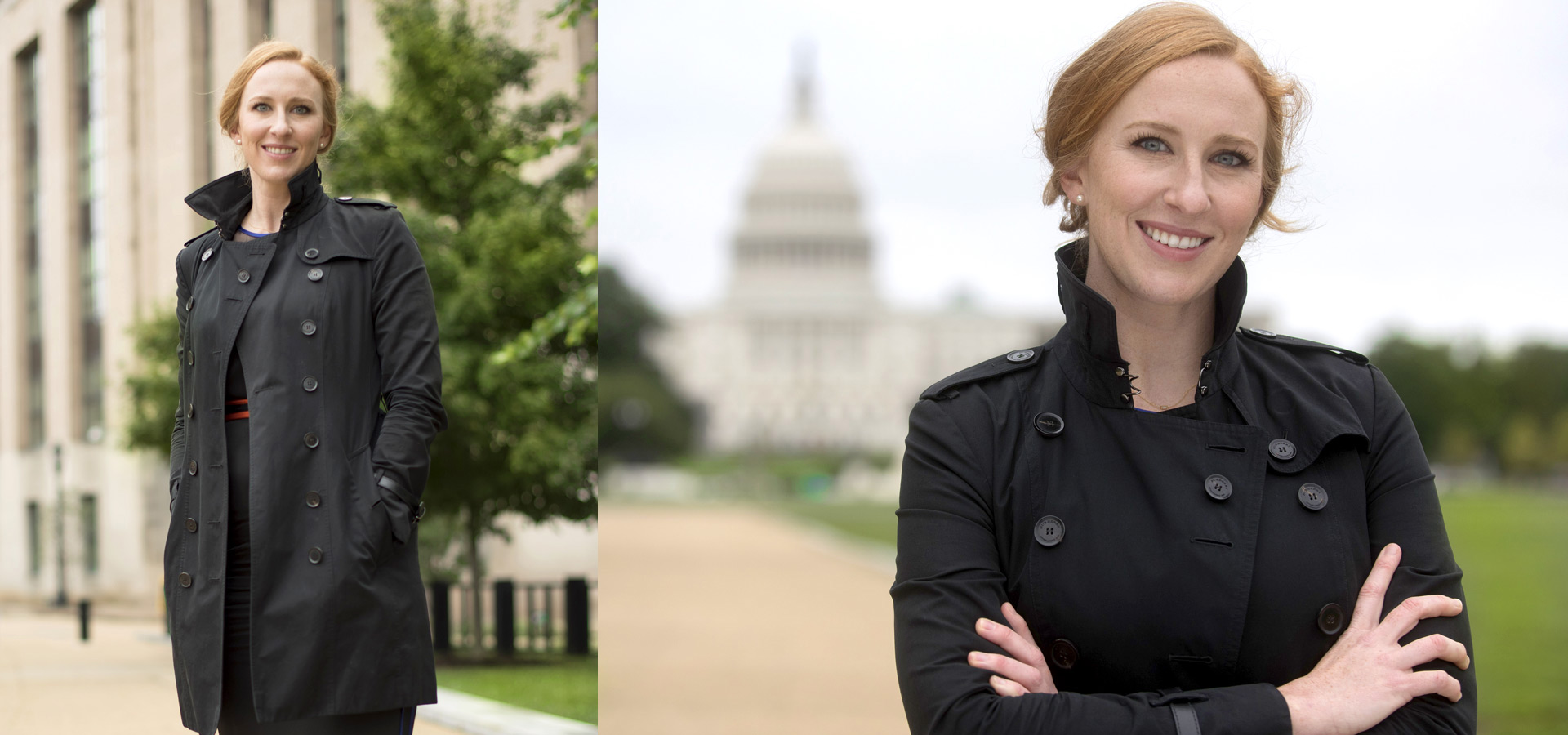

Natalie DeGraaf was on track for a master’s degree in medicinal chemistry when she realized she did not want to work in a laboratory for the rest of her life. But she’s in a lab today – sometimes, anyway.
Today, Natalie oversees a team at the non-profit CRDFGlobal to implement and manage international programs that mitigate the threat of biological agents through biosecurity and biosafety measures. Her team specializes in operating in hard-to-reach regions that have previously experienced war or pose a high risk for acts of terrorism, where U.S. government personnel may otherwise be restricted.
I didn’t expect to work in biosafety and biosecurity. It wasn't my choice so much as it chose me. But the moment it fell in my lap I decided, this is what I'm going to become an expert in.
“Every job I've taken I did not apply for. But I believe that if you work really hard, opportunities will present themselves. And every experience I’ve had has fed into the next one.”
Early in her studies she was an intern at the White House Office of Science and Technology Policy. She saw firsthand how crafting a policy has the power to shape people's decision making. “If we take even one small step, we can have a greater impact.”
Her next step was to enroll at NYU GPH. “I interned at the United Nations, and for my Capstone I was out in the boondocks of Nepal.” She gained practical experience at both the national and multinational level. “It helped me to see things you can achieve, that if you have a big vision, you can go for it.”
After graduating with her MPH in 2013, Natalie’s supervisor from the White House offered her a job in biosafety and biosecurity. A few months later, the Centers for Disease Control and Prevention called and said, “We really like what you’re doing. Can you come work for us – but on a different level?”
In 2014, they created a position for her in the Federal Select Agent Program, where she evaluated maximum containment laboratories around the world, and worked to secure biological agents like smallpox, anthrax, and other dangerous pathogens.
Unlike nuclear and chemical threats, biological threats are difficult to detect, track, and control. They can quickly infiltrate water and air systems and cause widespread exposure. They can easily be transported and released from pocket sized tubes, or spread through towns via aerosols by terrorists or other extreme groups.
“The threat is not always from nefarious actors,” says Natalie. “It can also be from an unassuming laboratory worker who accidentally carries the biological agent home on their clothes and infects their family.” She stresses that low-cost prevention programs can help prevent larger, more devastating costs to human and animal health.
Natalie also works with a group of early- and mid-career biosecurity experts called Emerging Leaders in Biosecurity Initiative (ELBI), creating a community of leadership in the field and tackling tough challenges with a multidisciplinary approach.
She encourages GPH students and alumni to network, even offering to field inquiries. “Reach out to me; ask me `How do I get that internship or get into this field?’ I can connect people. My recommendation is to network and be open to finding new ways to carve your own path. Keep your eyes open to what's out there, and don't confine yourself.
“Tomorrow, my job might take me down a different path that's related to biosafety and biosecurity, but it might be something completely new as well. When you believe in what you do, it's easy to have the energy every day to get up and get it done and be excited about it.”